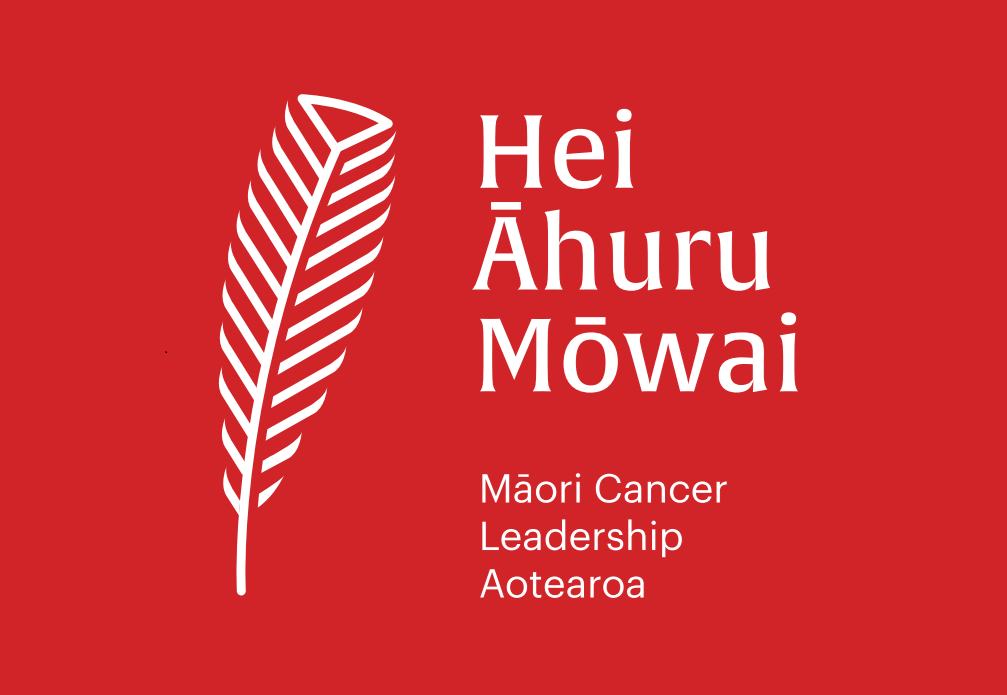Māori Cancer Researcher Awardees aim to improve cancer care
Three researchers committed to maximising Māori health gains are receiving funding for their research into improving cancer care.
Te Kāhui Matepukupuku o Aotearoa (the Cancer Society of New Zealand) and Hei Āhuru Mōwai Māori Cancer Leadership Aotearoa - supported by Te Aka Whai Ora - partnered three years ago to award Māori cancer researchers to address health inequities.
Cancer Society Tumu Whakarae (Chief Executive) Dr Rachael Hart says cancer disproportionately affects Māori and the Cancer Society “wants to be part of the solution” to address this inequity.
“We are very proud of our partnership with Hei Āhuru Mōwai to increase the diversity of cancer research in Aotearoa.”
To date the partnership has awarded eight Māori cancer research scholarships, including six PhD and two Masters research projects.
One of the researchers receiving the Award is paediatric dietitian Alexis Ross (University of Auckland). Her PhD research focuses on co-designing a prehabilitation pathway for children with acute lymphoblastic leukaemia (ALL) that optimises nutrition and physical activity.
Alexis’ research will break down into four projects: how changes to nutritional status (measured using weight and height) are associated with survival; the types of nutrition, activity and mood challenges faced by patients and whānau; how we can draw on these experiences to co-design a support pathway; and how this can be built into treatment protocols for ALL.
Alexis (Ngāti Kahungunu) says as a newly registered Māori dietitian her interest in improving the nutrition-related care and outcomes for Māori patients and their whānau has both a personal and professional perspective.
“In 2015, my cousin was diagnosed with ALL and received her treatment at Starship Blood and Cancer Centre. This gave me insight into how complex the impact of child cancer is. Many of the side effects persist beyond treatment completion leaving whānau to navigate a ‘new normal’ with little support.”
Alexis says it was “disheartening” to see recent diagnosis data revealing significant differences in the survival statistics of Māori children and young people compared to non-Māori.
Nurse consultant Stella Williams-Terei (University of Auckland) receives a Māori Cancer Researcher Award for her Master’s research looking at how Māori nurses contribute to cancer care and navigation for Māori patients.
Stella (Te Rarawa, Te Aupōuri, Ngāpuhi) says there is a lack of Māori cancer nurses in Aotearoa/New Zealand, and the cancer care workforce does not reflect the Māori population or the high burden of cancer for Māori. Her research aims to explore the experiences of Māori cancer nurses and build greater understanding of the contribution Māori nurses make in cancer care and navigation.
“This kaupapa has been with me a few years. I have been pondering it, developing it, and ensuring I have the right people around me to support this research.”
Maria Marama will be hosted by Pūrangakura, an independent kaupapa Māori research centre based in Tāmaki Makaurau/Auckland, for her Master’s project. Maria (Ngati Whakaue, Tuhourangi) will explore traditional and complementary approaches to breast cancer treatment for wāhine Māori, offering choices and enabling their mana motuhake (self-determination).
Maria says the research will be informed by her lived experience as a wahine Māori living with breast cancer and her passion for advocating for better outcomes for Māori across the health care system.
Building on previous studies, Maria hopes her research will “add to the critical discourse on the development of culturally responsive, rights-based, and evidence-informed strategies in breast cancer care that leverage better outcomes for Māori communities”.
Hei Āhuru Mōwai Tumuaki (Chief Executive) Cindy Dargaville congratulates the 2023 research award recipients who join a growing number of whānau conducting research that’s ‘by Māori, for Māori’.
“Their research will make a real difference for whānau experiencing cancer. Investing in and growing the Māori cancer research workforce will have a positive impact on whānau cancer outcomes.
“We sincerely acknowledge our partners Te Kāhui Matepukupuku o Aotearoa (the Cancer Society of New Zealand) for supporting this kaupapa alongside us.”
About Hei Āhuru Mōwai
Hei Āhuru Mōwai Māori Cancer Leadership Aotearoa is a national network of Māori cancer professionals, clinicians, researchers and whānau who are committed to rangatiratanga in cancer control, eliminating cancer inequities between Māori and non-Māori and accelerating hauora gains for whānau Māori.
About the Cancer Society of New Zealand
Te Kāhui Matepukupuku o Aotearoa (The Cancer Society of New Zealand) is the country's leading organisation dedicated to reducing the incidence of cancer and ensuring the best cancer care for New Zealanders. We are committed to working with communities and decision makers by providing leadership and advocacy in cancer control, with core services in information and support, research and cancer prevention.
The Cancer Society is a major funder of life-saving and world-class cancer research. In the past 10 years, the Cancer Society has invested more than 52 million dollars in research around the country that has improved the prevention, detection, and treatment of different types of cancer, and aimed to help New Zealanders live longer following a diagnosis.
Paediatric dietitian Alexis Ross. Photo credit: William Chea, University of Auckland.
Nurse consultant Stella Williams-Terei. Photo: Supplied.
(From left to right) Dr Jenny Lee-Morgan, Director of Pūrangakura, researcher Maria Marama and Dr Catherine Mitchell, Maria’s supervisor. Photo credit: Ngāhuia Eruera, Pūrangakura.




